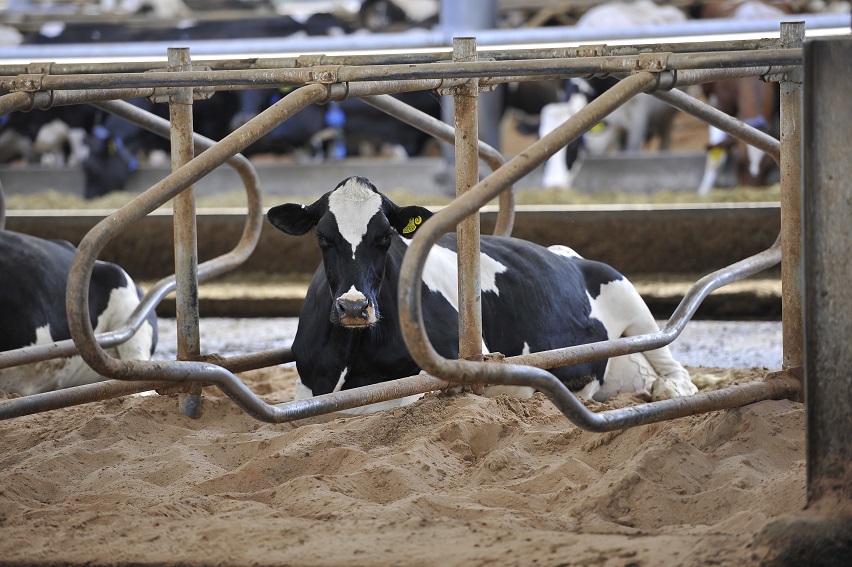Quarterly screening helps control Johne’s disease
Thursday, 1 September 2022
Johne’s disease testing funded by HerdAdvance is helping Powys dairy farmer Johnathan Wilkinson keep the disease under control.
Johnathan Wilkinson manages his herd of 380 all-year-round calving Holstein Friesian cows at Dyffryn farm in Powys. The farm was one of 500 farms selected by AHDB to take part in its HerdAdvance project.
Through the project, the farm began a whole herd quarterly screen for Johne’s to gain a better understanding of disease prevalence.
As part of the testing regime at Dyffryn farm, an annual Johne’s Management Plan was undertaken by the farm’s vet, Rob Edwards from Cain Veterinary Centre. Together with Jonathan and the farm team, Rob created a plan to tackle the disease and outlined a number of new management practices which Johnathan and his team have implemented.
Positive cows are now given a red tag to ensure the animal is clearly identifiable to all team members and are calved in a separate calving area to minimise the risk of contamination.
Family lines are traced back to track animal to animal disease patterns within the herd, and positive cows are bred to beef sires to break the disease family line cycle. Harvested colostrum is only used from cows which test negative for Johne’s.
After the first full year of regular testing, 3% of the herd were positive (classified as red cows), with further amber cows.
Jonathan said: “The project has made us much more aware of the disease and helped us focus on managing Johne’s and working to eradicate it from our farm. Our vet has played a key role in setting out a control programme for Johne’s on the farm”.
With a management plan formulated by Rob Edwards, the farm has been able to make progress in tackling Johne’s disease. Rob said: “It’s clear the farm is making headway in tackling the disease, but it will take a few years before we see the true positive impacts of the Johne’s Management Plan”.
Jack Thomas, Knowledge Exchange Manager for Dyffryn farm, highlights the importance of a regular testing programme. Jack said: “Johne’s can go undetected on farm for long periods of time. It’s a difficult disease to control, therefore a regular testing regime and a clear management plan is essential”.
Johne's disease is a chronic, contagious bacterial disease of the intestinal tract that primarily affects sheep and cattle. Infected animals shed the bacterium in manure, colostrum, and milk. Infection is most commonly acquired in young animals through contamination of the environment or ingestion of contaminated milk from an infected cow.
Testing for Johne’s disease has become a common practice in the UK. The use of 30 cow screens has, until recently, been the most common test used; however, it is now understood that sporadic screens is not an effective method of measuring disease prevalence in dairy herds.
Find out more about Johne's disease
Webinar: Managing Johne's disease in dairy cows
Webinar: New thinking on Johne's and getting the best from your Johne's disease review
The HerdAdvance project aims to help Welsh dairy farmers lift profitability and performance by focusing on improved herd health management and disease control. The initiative is part of the five-year Dairy Improvement Programme, which is funded by the Welsh Government and the European Union.


